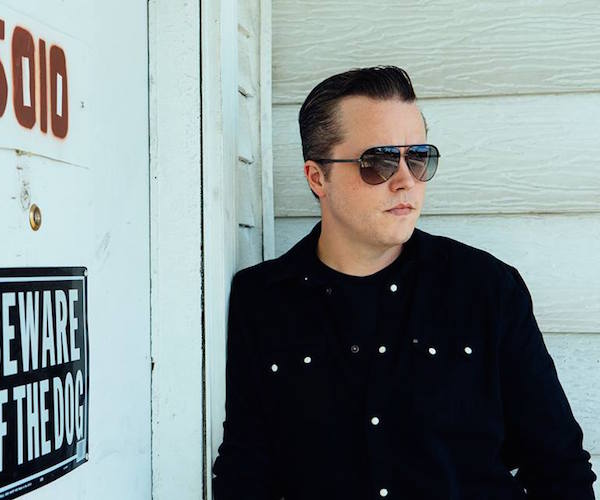Music Review: Jason Isbell, Laid-Back — More Country Than Country-Rock
Jason Isbell has got sober, and his songs ring with the urgency of the newly recovered (and newly remarried, to his violinist Amanda Shires).

Unofficial king of alt-country Jason Isbell — if you can’t handle a few hard-won insights and a lot of slow tempos, this wasn’t your kind of show. Photo: David McClister.
By Brett Milano
Jason Isbell played one of the shows of his life in Boston, but I’m not talking about the perfectly fine one at House of Blues over the weekend. I’m talking about his solo debut at TT the Bear’s Place in 2007. At the time, Isbell’s life was a bit messy: He’s just gotten divorced and either quit or was booted from the Drive-By Truckers (his ex was still in that band), had yet to get sober, and had made a barely-noticed solo CD, Sirens of the Ditch. His set at TT’s was full of searing personal confessions and blazing guitar solos. He played for 90 minutes, took a cigarette break on Mass. Ave and then played another hour. There were maybe 75 people there.
Things were certainly different when Isbell hit the HOB on Saturday: He’s won two Americana Grammys, garnered stacks of critical praise, and is now the unofficial king of alternative country; the HOB was long sold out. He’s also got sober, and his songs ring with the urgency of the newly recovered (and newly remarried, to his violinist Amanda Shires): They’re more profound, if a little less fun. He still does the searing confessions, but there’s less of the blazing guitar: Even the two Truckers songs in the set (“Decoration Day” and “Never Gonna Change”) were toned down a bit — the latter used to be a redneck anthem, now it’s more of a cautionary tale. He noted onstage that he doesn’t get many chances to play rock venues “where people stand up and raise hell,” but his usual set was only reworked slightly for the occasion — dropping the sobering, mortality-themed “Elephant” and adding one of his few outright rockers, “Super 8.”
Still, if you can’t handle a few hard-won insights and a lot of slow tempos, this wasn’t your kind of show. The recurring theme in Isbell’s lyrics is the grown-up one of responsibility. His sobriety is certainly part of that — “If It Takes a Lifetime” is the kind of jaunty, one-day-at-a-time song that made John Hiatt’s reputation — but he doesn’t overplay that topic. Early in the set he did two back-to-back songs about soldiers whose sense of duty lands them in deadly situations. The love songs weren’t all sweetness either: “Flagship,” which he and Shires did as an acoustic duet, presented marriage as a constant set of challenges. “Getting married was the scariest thing I ever did,” Isbell said introducing that tune — not the kind of admission you usually make when your wife’s there onstage.
Though the band worked up a few heads of steam, they more often laid back and let Isbell’s lyrics and acoustic guitar come forward; the music was pure country more often than it was country-rock. Early in the set he joked about Garth Brooks playing “down the road” (actually in Worcester) — but the jokes were completely respectful, hinging on his fear that Shires would ditch their own gig to go see him. Ironically enough, those jokes were followed by “Something More Than Free,” the dead-serious title track from Isbell’s latest album, a gospel-influenced ballad about a man who thanks the Lord every day that he’s making any wages at all. It’s the kind of gritty workingman’s blues that Merle Haggard was writing 40 years ago — and not the type that Garth Brooks is going to write anytime soon.
Brett Milano has been covering music in Boston for decades, and is the author of Vinyl Junkies: Adventures in Record Collecting (St. Martins, 2001) and The Sound of Our Town: A History of Boston Rock & Roll (Commonwealth Editions, 2007). He recently returned from New Orleans where he was editor of the music and culture magazine OffBeat. His latest book is Don’t All Thank Me At Once (125 Records), a biography of the unsung pop genius Scott Miller, who led the bands Game Theory and The Loud Family.
Tagged: alternative country, Amanda Shires, Brett Milano, Jason Isbell

